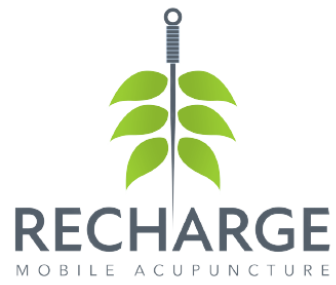-
Phone Number:
720-770-1155
-
Email :
info@rechargemobileacupuncture.com
FAQ
Please note that this FAQ provides general information and it’s important to consult a healthcare professional or licensed acupuncturist for personalized advice and answers to specific questions regarding your health and individual circumstances.
Acupuncture is a therapeutic practice that involves the insertion of thin needles into specific points on the body to promote balance and harmony, and restore the flow of vital energy known as Qi.
Acupuncture needles are very thin, so most people experience minimal discomfort during the insertion. Sensations may vary from person to person, but many find acupuncture to be a relaxing and gentle procedure.
When performed by a trained and licensed acupuncturist, acupuncture is generally considered safe. The use of sterile needles and adherence to proper hygiene practices minimize the risk of complications. It is important to consult a qualified professional for acupuncture treatments
The duration of an acupuncture session can vary but typically lasts between 45 and 60 minutes. The length of the session depends on the condition being treated and the practitioner's recommendations.
The number of acupuncture sessions required varies depending on the individual, the condition being treated, and its severity. Acute conditions may require fewer sessions, while chronic conditions may require ongoing or periodic treatments.
During an acupuncture session, you will be asked about your medical history and specific concerns. The acupuncturist will select appropriate acupuncture points and gently insert the needles. You may experience a sense of relaxation during the treatment. Afterward, the needles will be removed, and any additional therapies or recommendations may be discussed.
Acupuncture is generally well-tolerated, and serious side effects are rare. Some people may experience minor bruising, slight bleeding, or temporary soreness at the needle insertion sites. Fatigue or mild dizziness after a session is also possible. It is important to inform your acupuncturist of any unusual or concerning reactions.
Yes, acupuncture can often be combined with other treatments, including conventional medicine, physical therapy, and herbal remedies. It is important to inform your healthcare providers about all the therapies you are receiving to ensure coordinated and safe care.
Insurance coverage for acupuncture varies. Some insurance plans may provide partial or full coverage for acupuncture treatments, while others may not. Contact your insurance provider to understand your specific coverage details. I currently do not accept insurance.
To find a qualified acupuncturist, consider seeking recommendations from your healthcare provider, friends, or family. Ensure that the acupuncturist is licensed and accredited by the NCCAOM. Verify their credentials, experience, and specialization to make an informed decision.
Mobile acupuncture refers to the practice of providing acupuncture treatments in the comfort of a patient's home, workplace, or other preferred location. Instead of visiting a clinic or office, the acupuncturist travels to the client's desired location to perform the treatment.
With mobile acupuncture, the acupuncturist brings the necessary equipment, including sterile needles, to the client's location. The session typically follows the same principles and techniques as an in-clinic acupuncture session. The practitioner assesses the client's condition, selects the appropriate acupuncture points, and administers the treatment on-site.
Mobile acupuncture offers convenience and flexibility. Clients can receive acupuncture treatments without the need to travel, saving time and effort. It is particularly beneficial for those with mobility issues, busy schedules, or individuals who prefer the privacy and comfort of their own environment.
The effectiveness of mobile acupuncture is comparable to in-clinic acupuncture when performed by a trained and licensed acupuncturist. The same principles and techniques are applied, focusing on restoring balance and promoting well-being. However, it's important to ensure that the mobile acupuncturist maintains high standards of hygiene and professionalism.
To schedule a mobile acupuncture session, you typically need to contact the mobile acupuncturist or their practice and inquire about their availability and service area. You can discuss your needs, preferred location, and agree upon a mutually convenient appointment time.
Before a mobile acupuncture session, you may need to prepare a quiet and comfortable space where the treatment can take place. Ensure that the area is clean and clutter-free. Additionally, wear loose and comfortable clothing that can be easily rolled up or adjusted to access acupuncture points.


